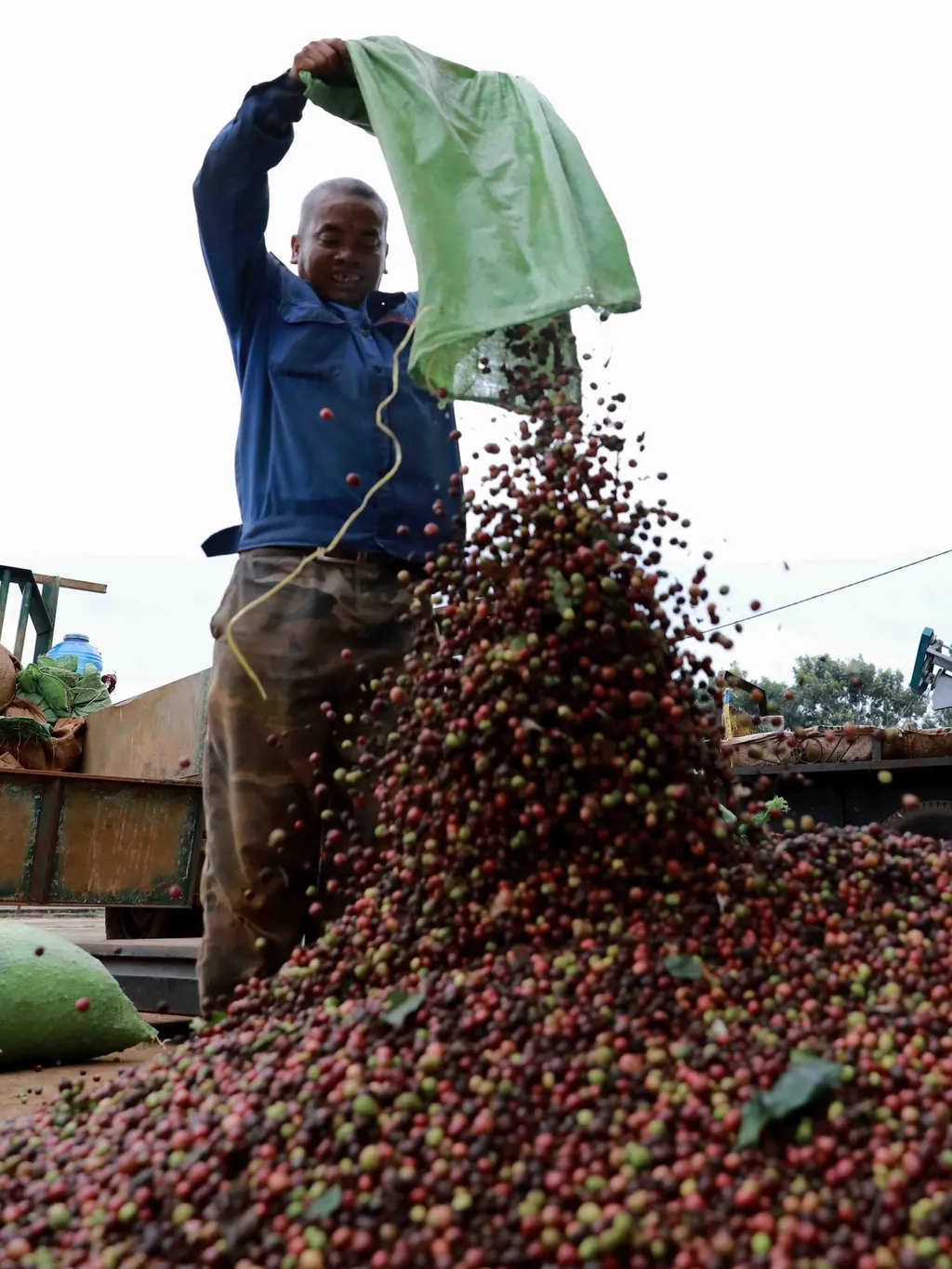 Economy
Economy

{ "id": "Sm_cGyKjKA", "type": "myToolImages", "data": { "data": "" } }
 |
| A Kon Tum farmer collects coffee. The drink enjoyed the highest export growth to the UK in the past eight months. — VNA/VNS Photo |
{ "id": "vnwaJwAxgc", "type": "myToolImages", "data": { "data": "" } }
HÀ NỘI — The UK-Việt Nam Free Trade Agreement (UKVFTA) is considered a rock on which bilateral trade may flourish, but Vietnamese enterprises are advised to pay attention to three challenges in this market.
The latest data from the General Department of Customs showed Việt Nam's export to the UK increased 7.7 per cent in the past eight months, amounting to nearly US$4.2 billion, of which Việt Nam enjoyed a trade surplus of $3.6 billion.
Many products witnessed strong growth in exports to the UK, including coffee, up 84 per cent; textiles and garments, up 45 per cent; computers, electrical products, spare parts and components, up 30 per cent; machine, equipment, tools and instruments, up 29 per cent; footwear, up 28 per cent; pepper, up 29 per cent; and fruits and vegetables, up 24 per cent.
However, some also saw declines, including telephones, mobile phones and parts, iron and steel; rubber products, wood and wooden products and ceramic products.
The mobile phone group still raked in the biggest value of $801 million, but its shipment to the UK decreased by 11 per cent yearly. Export of steel saw the steepest decline of 62 per cent to nearly $327 million, followed by rubber products, down 57 per cent, while exports of wood and wooden products and ceramic products fell 11 per cent and 30 per cent, respectively.
The UK is currently Việt Nam's third largest trading partner in Europe.
However, according to the Multilateral Trade Policy Department under the Ministry of Industry and Trade (MoIT), Vietnamese businesses are facing three big challenges in exporting to the UK.
First, the UK has high technical requirements, food hygiene and safety standards, which require Vietnamese businesses to thoroughly prepare business plans and build and develop products and brands systematically.
In addition, businesses also need to pay attention to some regulations on sustainable development, such as labour and environment, as the EU and UK have a high interest in these issues with clear sustainable development goals.
Second, Vietnamese businesses will have to compete fairly with the UK businesses and those of other countries, especially those from the former British colonies. UK firms know their consumer habits and the professional corporate organisation system.
Meanwhile, competitive pressure from other countries, including former UK colonies, comes from their longer establishment in this market, deeper cultural connections and even the ability to coordinate more efficiently with UK business systems.
Moreover, the UK is negotiating free trade agreements with 19 other partners and accessing the Comprehensive and Progressive Agreement for Trans-Pacific Partnership (CPTPP), which means more countries with a similar export structures to Việt Nam will compete in this market in the future.
The third is the challenge arising from supply chain disruption. The supply chain disruption, and sharp increases in freight rates due to high fuel prices, are hampering foreign trade of Việt Nam's import-export businesses.
For example, wood export orders are declining in the major markets such as the UK, US and EU due to the high inflation rates in these countries. In addition, though the export of textiles and garments still recorded high growth, these enterprises still face difficulties in supplying raw materials and accessories due to supply disruptions, making it difficult for Vietnamese businesses to sign new contracts or expand production.
Some groups of raw materials and accessories for the textile industry are imported from China. However, strict pandemic control in this country hinders the import of these products while the delivery time is prolonged. — VNS